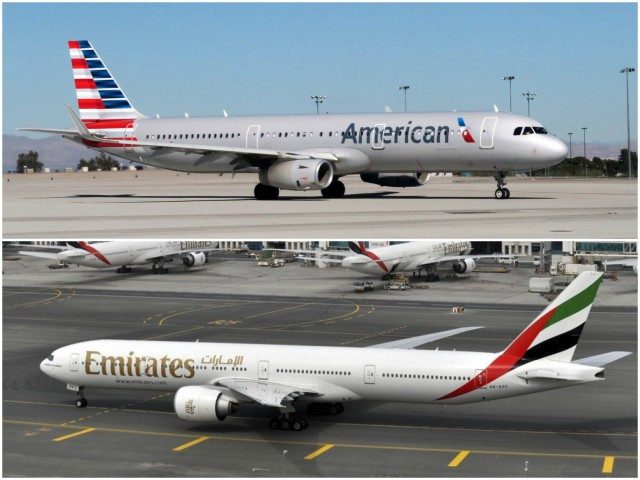A central part of President Donald Trump’s winning campaign platform last year was that American interests and – this is key – Americans’ interests should be the foundation of U.S. policymaking. The America First message resonated with American voters who had felt during previous administrations that America’s interests were a mere afterthought in the policy sphere. Trump voiced the right message, at the right time, and he won because of it.
One area particularly in need of reform is re-prioritizing American interests in international trade policy. Trade has been a cornerstone of the U.S. economy ever since our nation’s founding, and our trade policies have, in general, reflected our commitment to individual liberty, free markets, and fair trade policies. In order to ensure our trade agreements continue to reflect American interests, we must regularly examine existing agreements to make sure they are being enforced and followed by all parties, and that the agreements themselves still advance our goals.
The Open Skies agreements with the governments of Qatar and the United Arab Emirates, which are trade agreements governing commercial airlines, are badly in need of review by the Trump administration. Over the past several years, these Gulf nations have flagrantly and systematically ignored the terms of the Open Skies agreements, disrupting the international commercial air marketplace, driving out competition by unfair means in violation of the agreement, and simultaneously threatening U.S. jobs and national security.
The Open Skies agreements specifically prohibit the government of any country from subsidizing airlines to distort the market. But that is exactly what the governments of Qatar and the United Arab Emirates have done, in order to prop up their airlines, Emirates, Etihad Airways and Qatar Airways. In fact, the Middle East carriers are subsidized on such a large scale that the airlines have become de facto extensions of the governments of Qatar and the United Arab Emirates. The Daily Caller reports that over the last ten years, the governments of Qatar and the U.A.E. have provided more than $50 billion in subsidies and resources to their state-owned carriers.
The subsidization of the three Persian Gulf carriers has allowed them to fly wherever they want, whenever they want, and without any concern for profit maximization or even consumer demand. Kelly Riddell notes in the Washington Times: “…Emirates Airline, Etihad Airways and Qatar Airways have become the fastest growing carriers in the world, with Dubai’s airport now the world’s busiest [for international travelers]. Bottom line: The Big 3 U.S. carriers – American Airlines, Delta Airlines and United Airlines – are competing against governments not corporations.”
This scheme has allowed the oil-rich Qatar and the U.A.E. to offer seats on their airlines for far below the market price. The short-term objective is to undercut prices enough to capture market share, thereby accomplishing their long-term objective of forcing U.S. and European airlines out of major routes. The two countries have made the long-term calculation that they can afford to lose revenue today to dominate certain routes in the near future.
Proof that these flights are revenue losers comes from an economic study by Compass Lexecon, which shows that since the beginning of 2015, these three carriers have moved to increase their U.S.-bound flights by roughly 50 percent. Yet, of the 23 routes controlled by the three Persian Gulf carriers into the United States in 2014, an astounding 19 of those routes lost money. Only four routes could be called “revenue generators” in any meaningful sense of the term.
It’s an insidious plan that runs afoul of the Open Skies agreements, but it’s also highly effective for the Gulf countries’ end goals. Qatar and the U.A.E. have already successfully overrun international routes to India and the Middle East, and have turned their attention to U.S.-Europe traffic. It seems clear that the two countries now intend to monopolize the international routes between the United States and other popular travel destinations.
At this rate, and without strong oversight and enforcement of the agreements by the Trump administration, it is easy to foresee a scenario in the not-so-distant future in which the only international travel options will be courtesy of one of the three Persian Gulf airlines. It’s a scenario Qatar and the U.A.E. are working overtime to make a reality.
Some of President Trump’s key advisors are pushing hard for the administration to address the Open Skies agreements and to enforce the agreements as written, and the American people who enthusiastically embraced the president’s “America First” agenda should encourage the Trump administration to review the Open Skies agreements and hold Qatar and the U.A.E. responsible for violations of the agreement.
Halting Qatar and the U.A.E.’s rogue plans to undermine the U.S. airline industry would be a great step for the president to take to put his “America First” agenda into action.
Jenny Beth Martin is the president and co-founder of Tea Party Patriots.

COMMENTS
Please let us know if you're having issues with commenting.